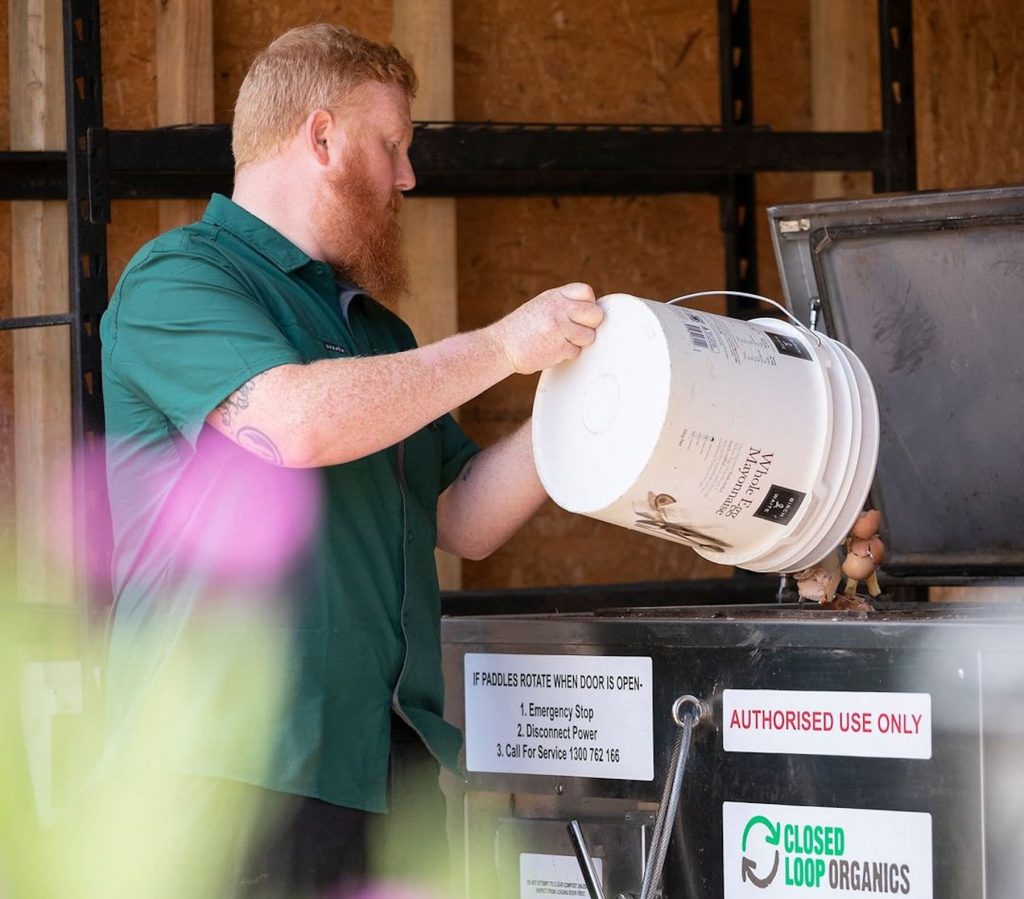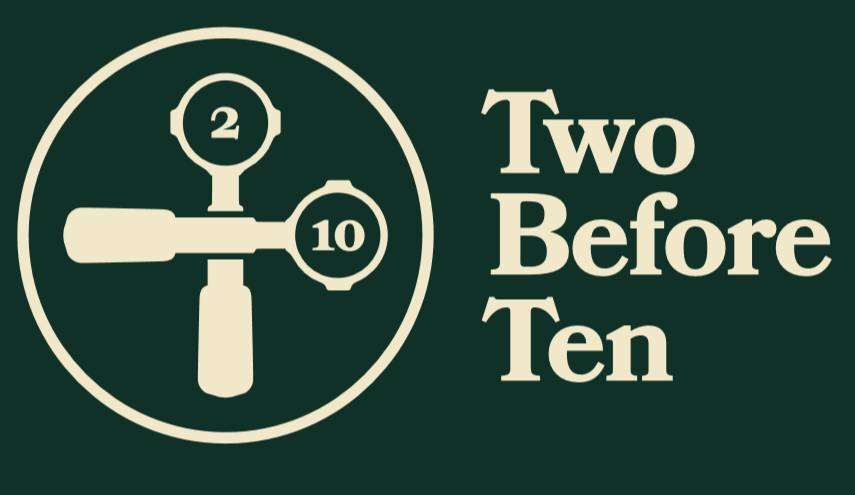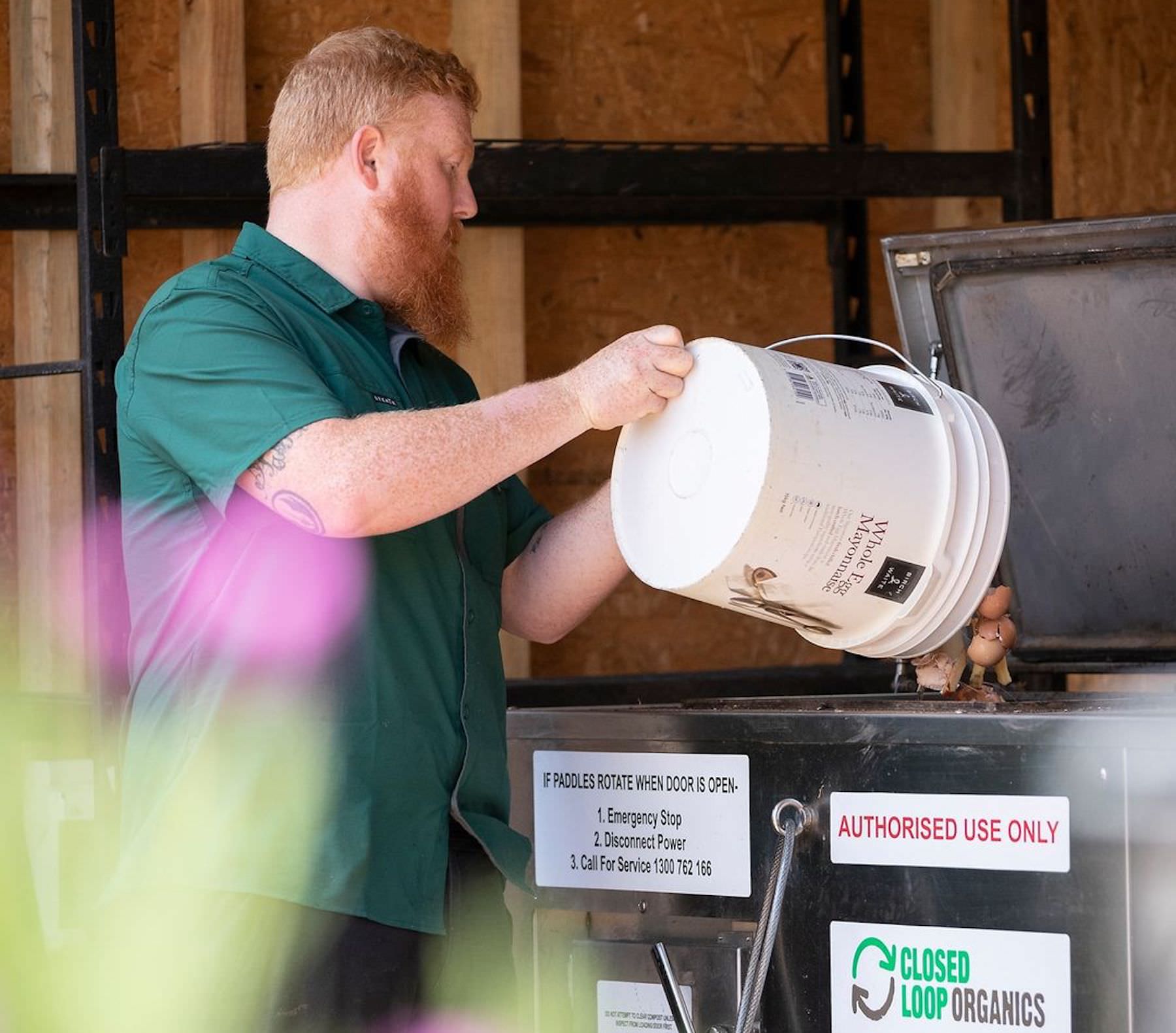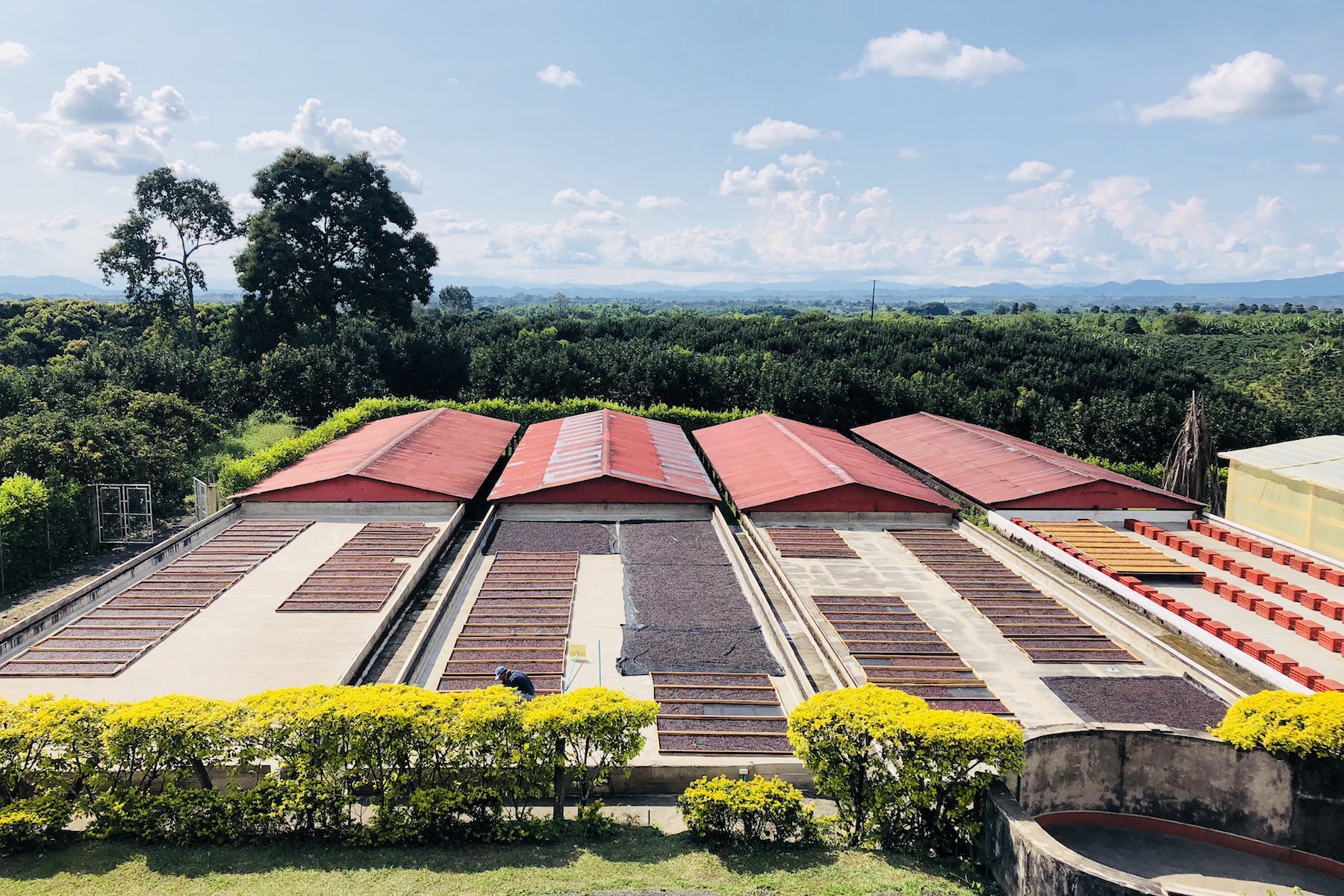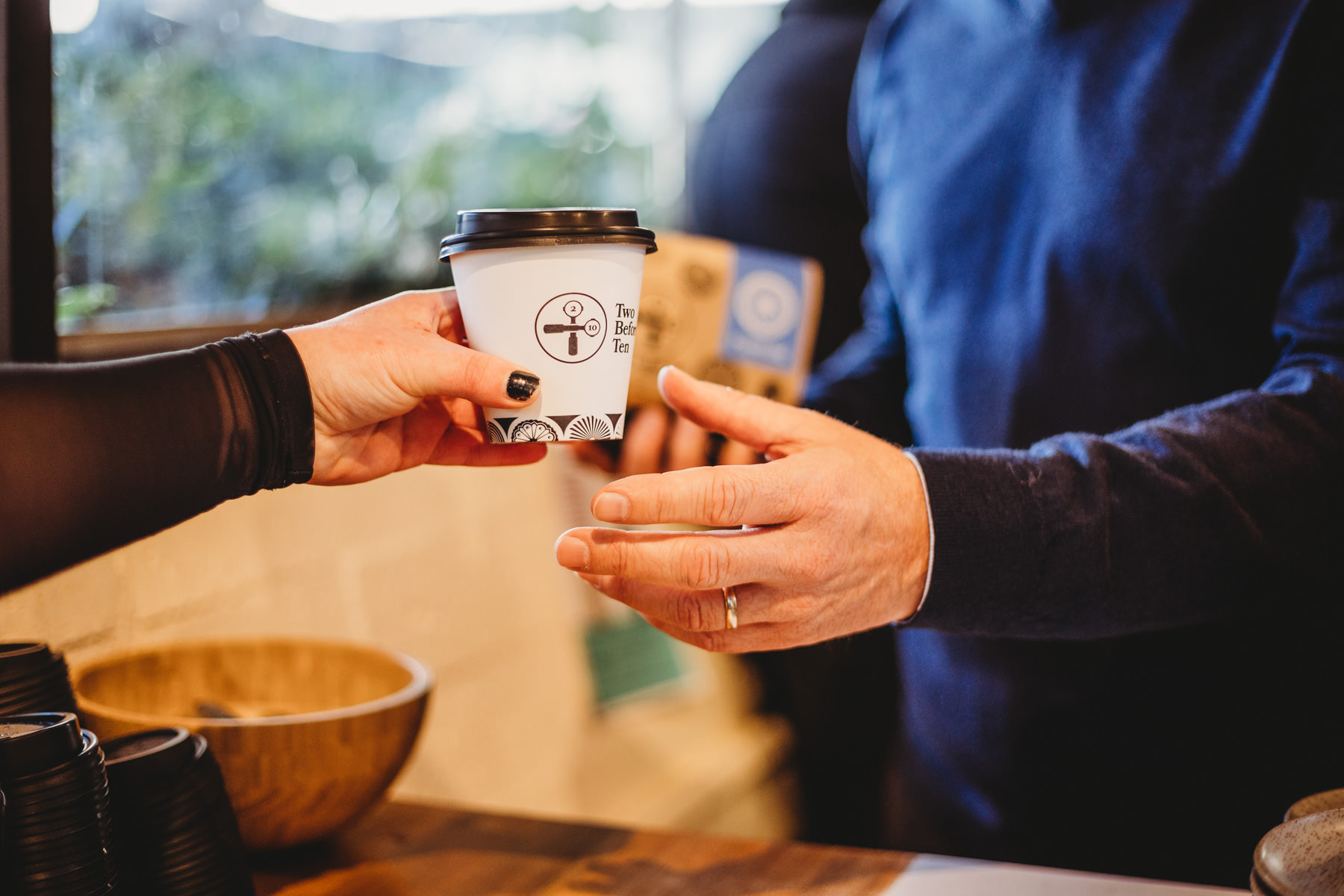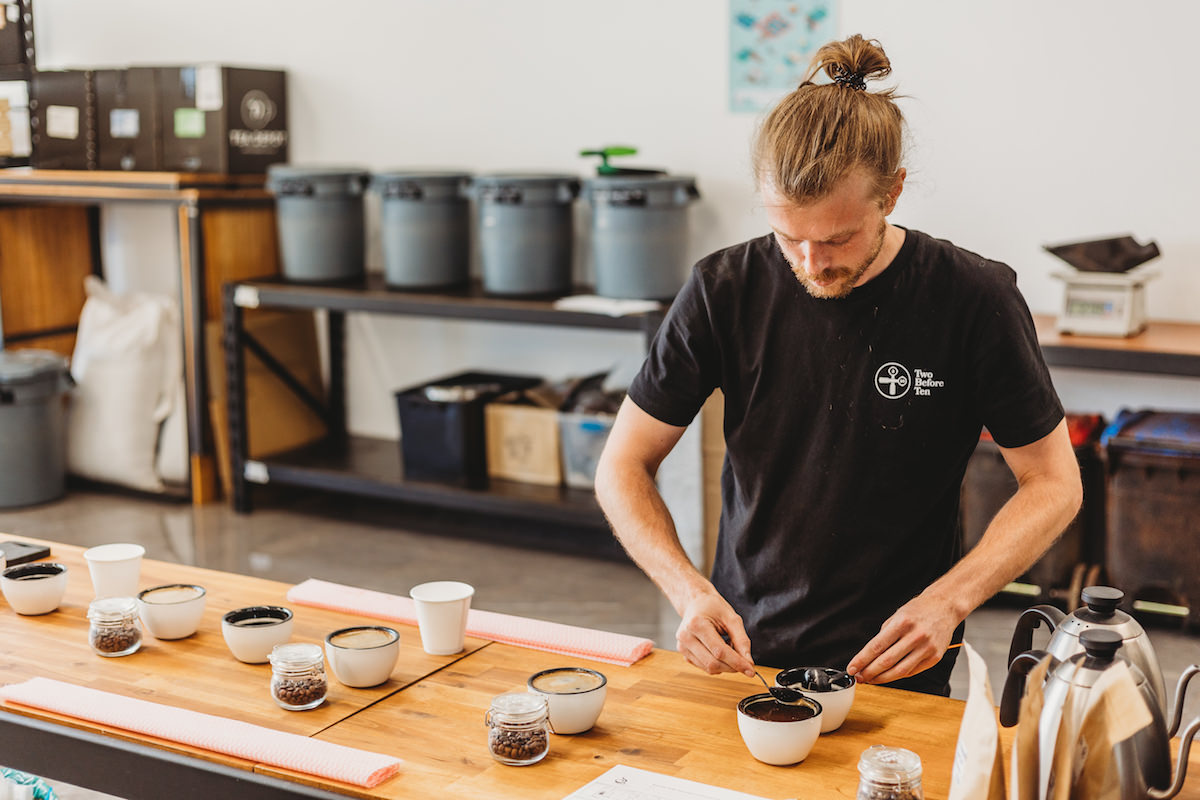Sustainable Food Practices: How Some Australian Cafes are Minimising Waste and Maximising Impact
It's been the norm for decades to choose the easy option when it comes to the business of cafes and restaurants. Sending food and packaging waste to landfills is cheap, convenient and doesn't ask anything extra of staff or customers. But as people are shifting their priorities towards sustainability, cafes and organisations across Australia are taking the opportunity to implement a range of waste reducing ideas into their businesses. Here are a few that have caught our attention in recent years.
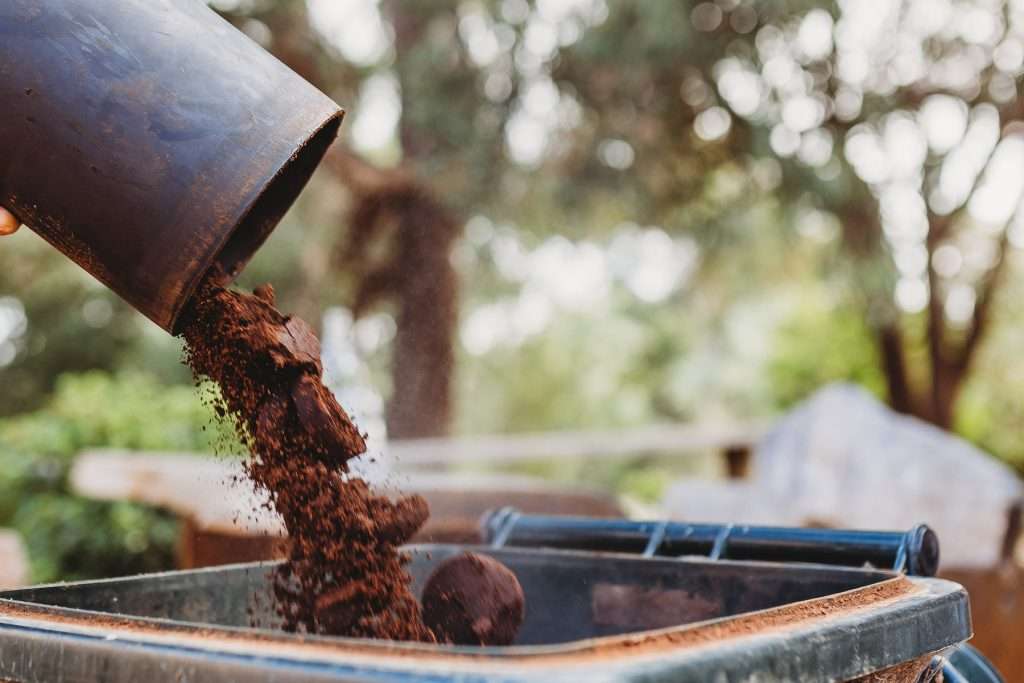
Re-usable cups only
Cat & Cow Coffee are a zero waste venue in Randwick, Sydney with some bold ideas. When they opened in 2019 the café only accepted reusable cups for takeaway coffees and offered no single use cups at all. For smoothies, bircher and granola they have glass jars with a $2 deposit and return system. They focus on buying supplies in bulk and recycle all cardboard, paper and soft plastic. The commitment is nothing short of impressive! Unfortunately in 2020 with pandemic regulations they had to introduce disposable takeaway cups in order to stay in business. They chose compostable cups for this and charge a 50c fee which is donated to ocean clean up. Co-owner Lenka says over 70% of customers still bring their re-usable cups.
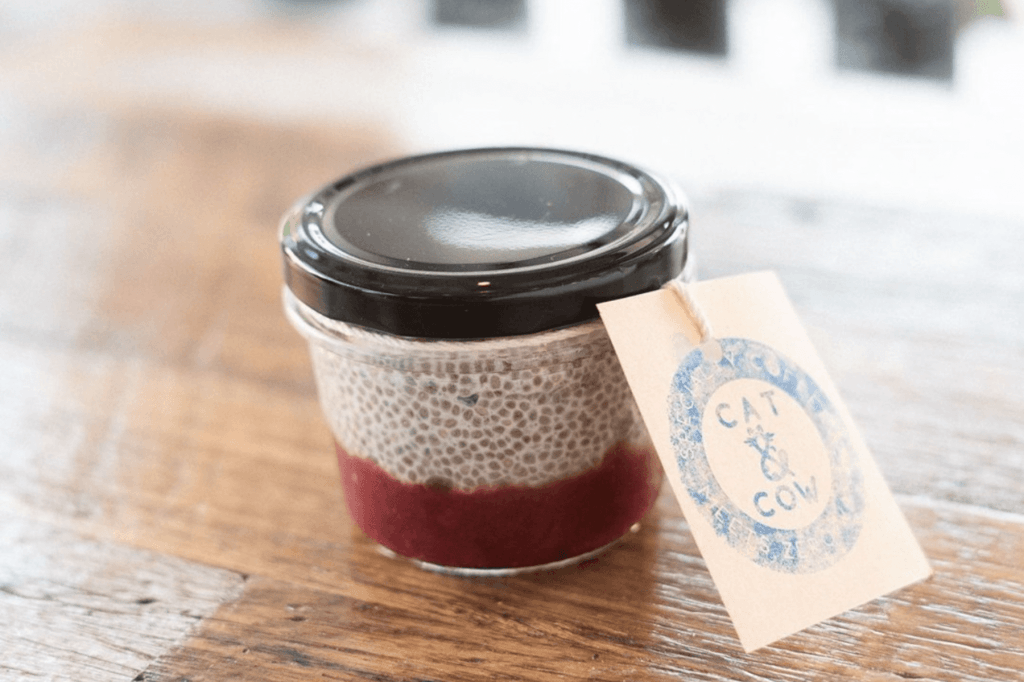
The guys behind Green Caffeen took this concept of eliminating single use cups and created an entire reusable coffee cup system. They noticed a gap in the market of people who want to do the right thing but may have forgotten their cup at home. Green Caffeen offers customers the convenience of a reusable cup without the responsibility of washing it or needing to remember to bring one along every time. Starting in Kiama, NSW, the business has now spread across Australia to over 760 locations. We're proud to have Green Caffeen available at all our Canberra cafes.
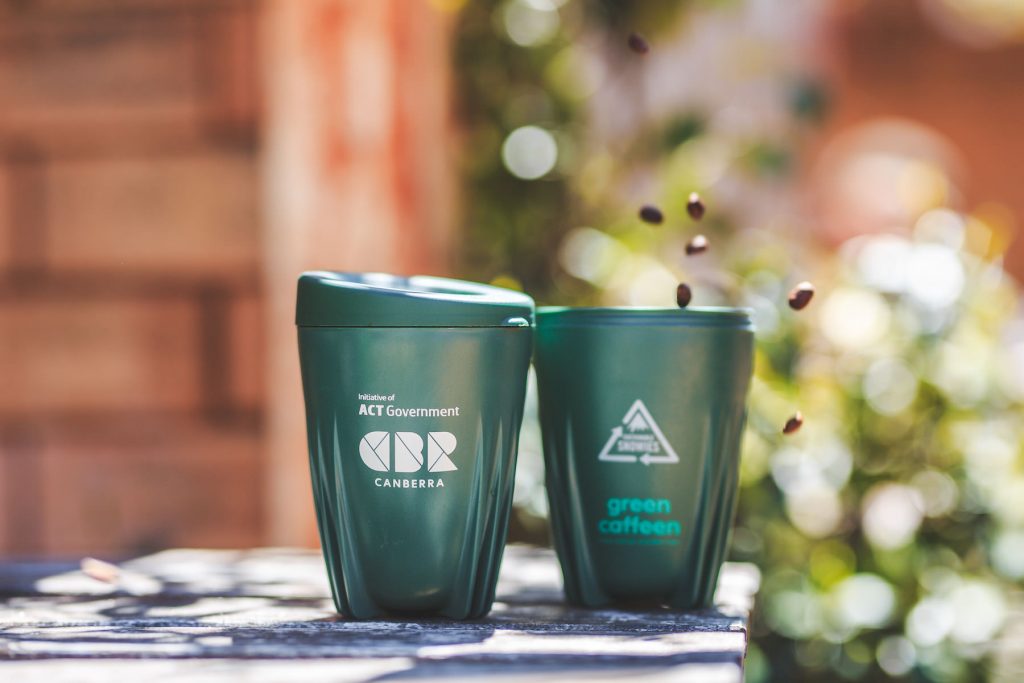
Turning leftovers into meals
Cornersmith café and cooking school in Sydney decided to focus on sustainability through seasonal food, preservation and food waste. Owner Alex Elliott-Howery takes parts of produce that are usually tossed and teaches people great ways to make them the star of a dish. Things like celery leaves and leek tops are turned into pesto's, salads and sautéed greens. Not only do her classes help people reduce food waste at home, they also open up a world of new flavours and save money in the process.
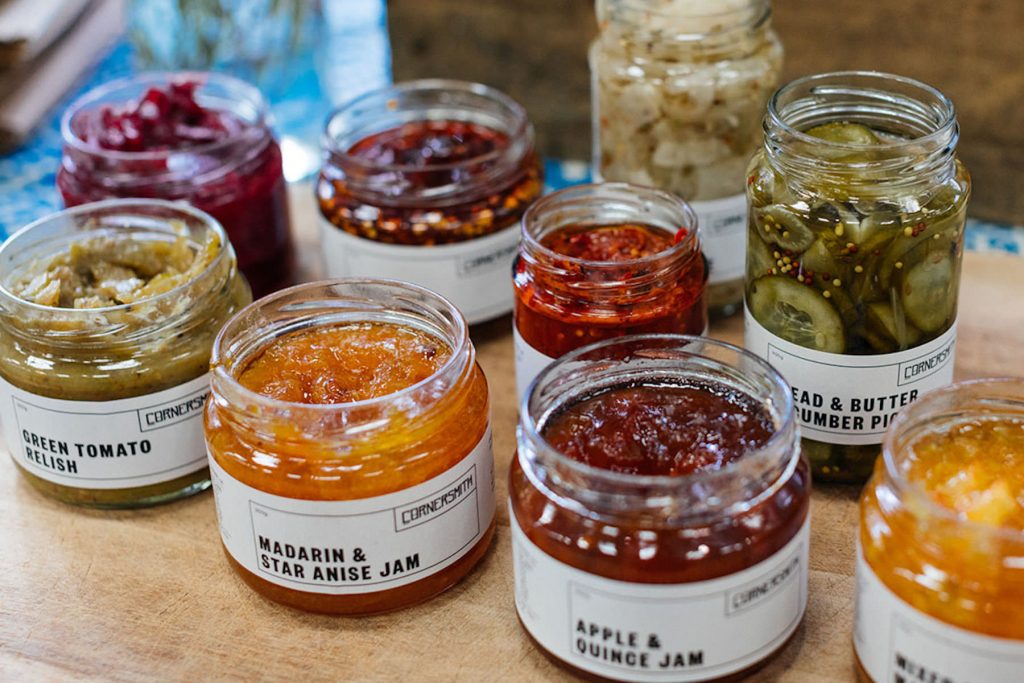
In Wollongong, non-profit organisation Hidden Harvest host "Wasted Wednesdays". The fortnightly popup restaurant draws 40 diners to a themed dinner built on food that would have otherwise gone to waste. Bruised tomatoes, limp kale and partially smooshed cucumbers are rescued from independent grocers and turned into delicious 3 course vegan meals. Dishes of the past have included 'roast wonky veggie trio with potato purée and sage', 'rescued roast capsicum' and 'coconut millet pudding with bruised cinnamon apples'. One dinner in particular featured 75kg on unwanted zucchini across all 3 courses. Conversation is encouraged with volunteer staff taking time to chat and discussion cards at each table with food waste reduction tips.
At Two Before Ten in Canberra, baristas save leftover steamed milk and send it back to the kitchens. There, its turned into whipped vanilla ricotta for pancakes and fruit toast, and beetroot ricotta on salads and burgers. Produce gluts from the Aranda Urban Farm are distributed between the cafes and chefs get creative with weekly specials featuring the seasonal fruit and veg.
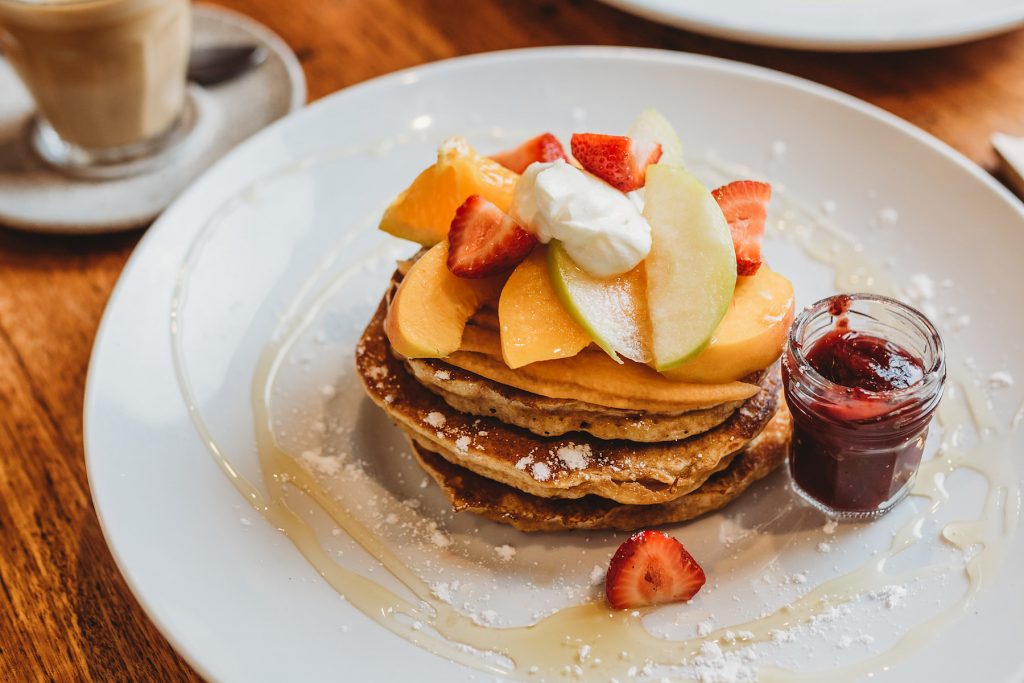
Growing food on site
Acre in Camperdown, in partnership with Pocket City Farms, have turned an old bowling club into an urban farm and eatery. Diners in the 350 seat venue are surrounded by locally grown produce that features heavily across the menu. Their goal is to change the way people think about and consume food - and it's hard not to while looking out on rows veggies that make up their delicious Acre Salad. The farm also runs tours, workshops and excursions, sharing knowledge of regenerative agriculture, waste reduction, permaculture and water saving techniques.
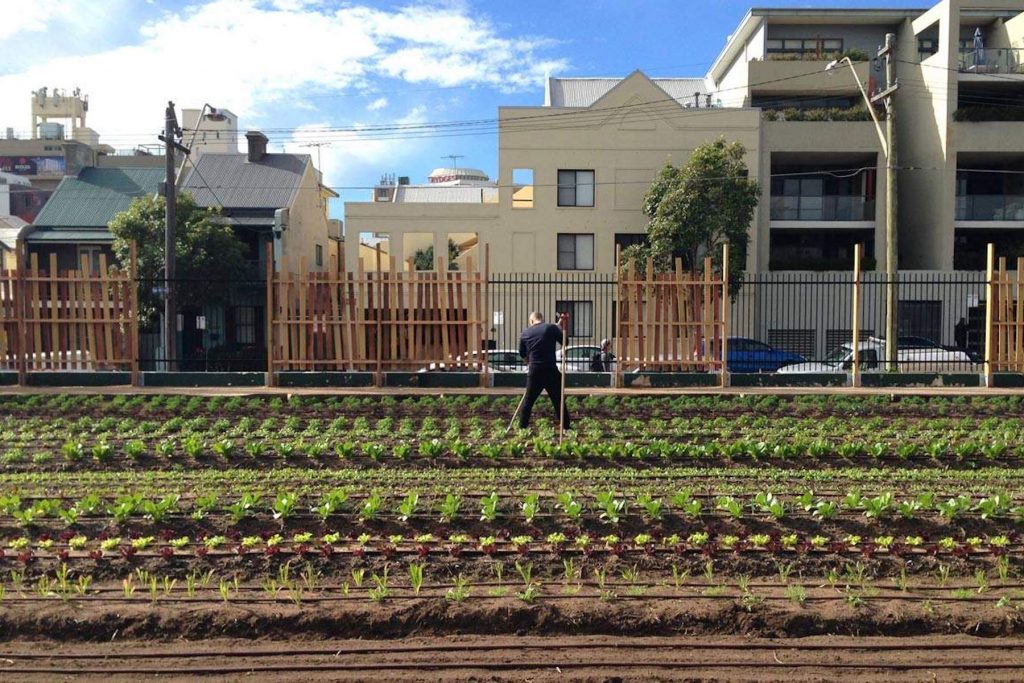
The Aranda Urban Farm operates on a similar concept. The plot surrounding the old Aranda shops now provides produce year round to support a seasonal menu for the Two Before Ten cafes and 10 Yards Bar. Generous garden beds line walking paths and extend into the customer carpark. A fruit tree grove is tucked behind the bus stop, mushroom growing rooms sit along the boundary fence and bee hives are hidden amongst a native garden. Produce from the farm goes into just about every item on the menu, from the Aranda Garden Bowl to the Zucchini Burger and the popular Shrooms on Toast. Managing director Chris Dennis was finally able to put his dream into action, with transported food miles reduced to almost nothing and a menu based around highly nutritious, fresh, seasonal produce.
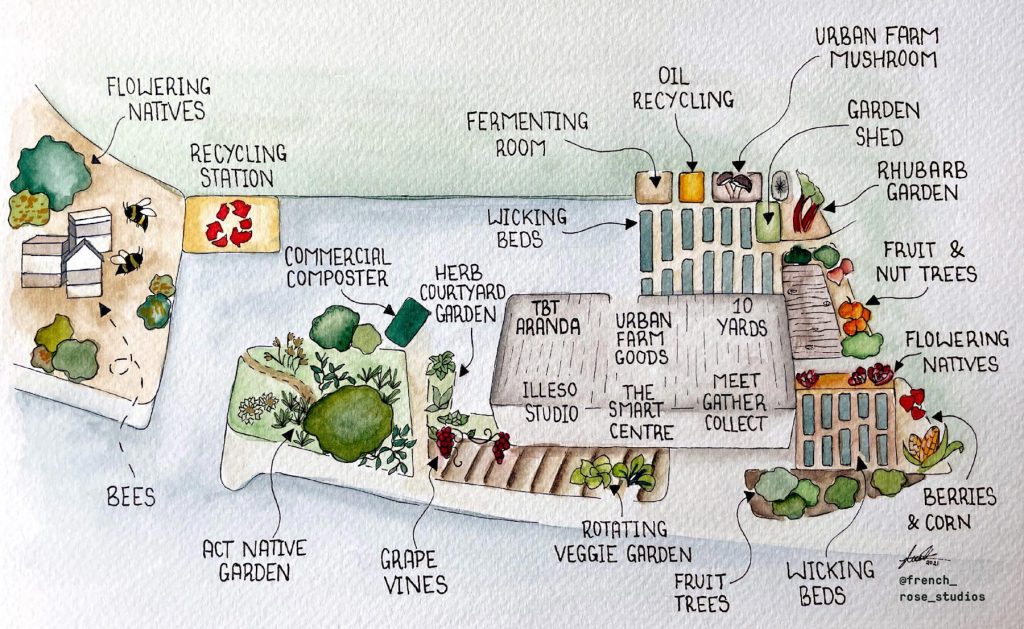
Barragunda Dining in Mornington have located their restaurant (opening late Spring 2023) within an operating farm, with the greenhouse and eatery connected directly to the farm shed. Head chef Simone Watts has long been an advocate of ethically and sustainably grown food and often incorporates Australian native ingredients alongside more traditional farm produce. The site includes an orchard, vegetable market garden and 250-400 head of cattle. Each element of the farm helps support the other through regenerative farming techniques. In addition to the restaurant, the Barragunda Collective supplies the Mornington Peninsula community with organic fruit, veg, mushrooms and preserves through a fresh produce box subscription service.
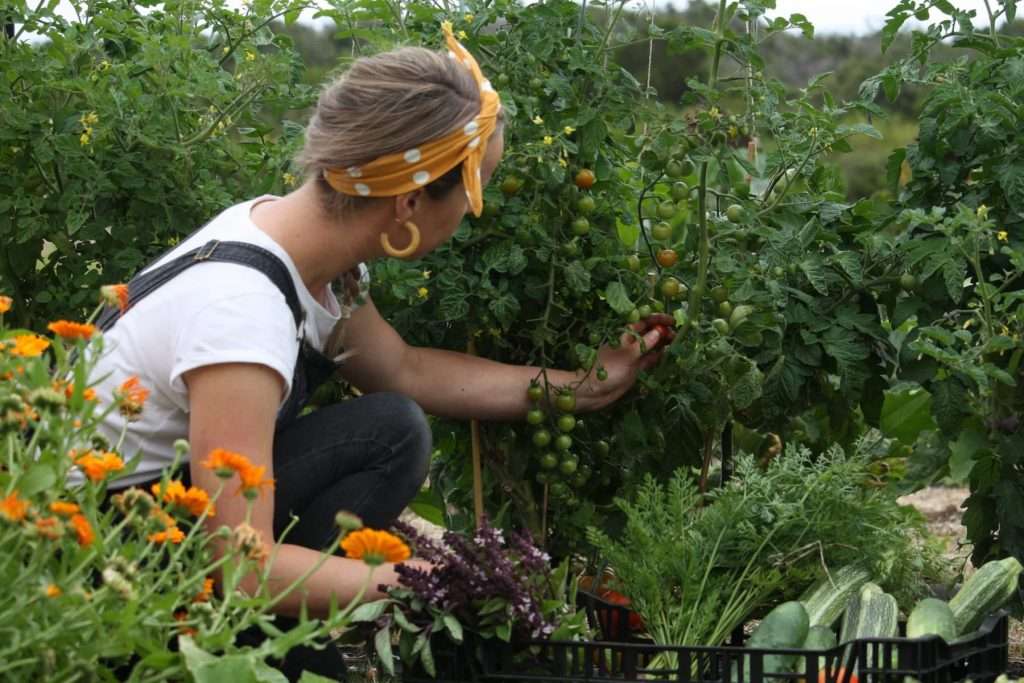
Melbourne Skyfarm is taking urban farming to a whole other level. Located atop Siddeley Street Carpark in Docklands, the project aims to transform a bare concrete carpark into a 2000-square-metre inner city rooftop oasis and thriving urban farm. There, Melburnians can enjoy a meal, explore a beautiful landscape, have an engaging educational experience and find out about emerging solutions to environmental challenges. The space will have a sustainable café that's open to the public and be free to tour the rooftop farm that overlooks the Yarra River. It's expected to produce over 5 tonnes of fresh produce per annum, most of which will be donated to OzHarvest. Director Brendan Condon explains the goal is to demonstrate how to grow fresh produce and incorporate nature into city spaces, whilst using greenery to help cool the urban environment.
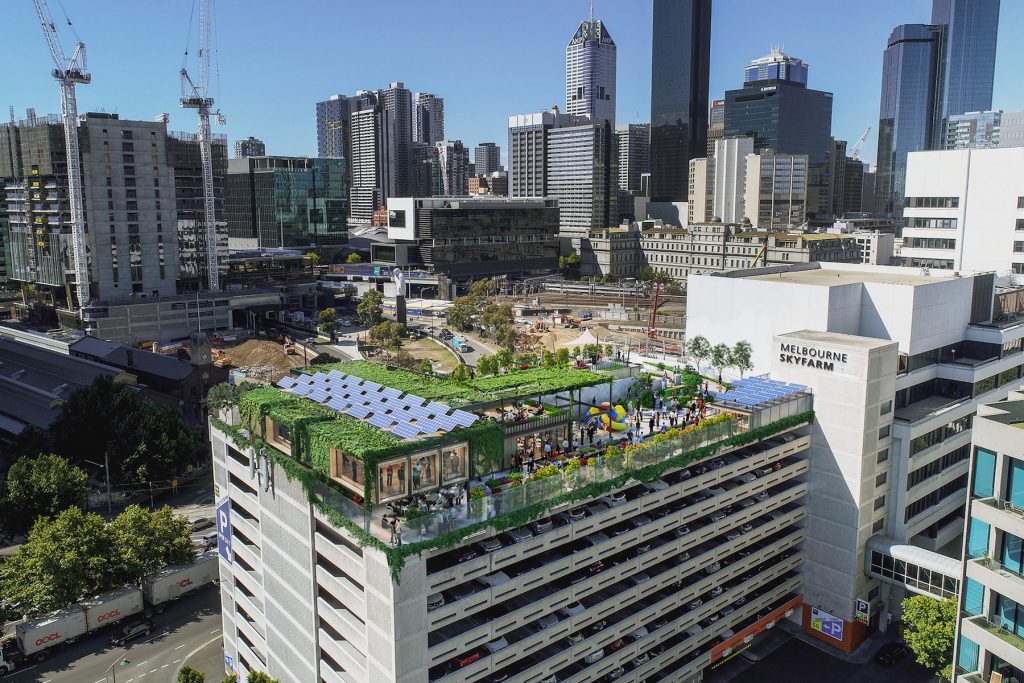
Repurposing waste to create a closed loop
Brae along Cape Otway Road in Victoria is also a working regenerative farm, but what we love about their operation is how they've integrated the restaurant with the garden to create a closed loop system. 90% of their fruit and vegetables used in the restaurant come from the farm, and in turn all the food scraps are composted and used to feed the soil that grows the next season of crops. They even grow their own grain that's used to bake the house sourdough. Rain water is collected on site and waste water is also processed and reused for irrigation. Besides dining at the restaurant, visitors can also tour the farm and stay the night in premium accommodation built using recycled materials.
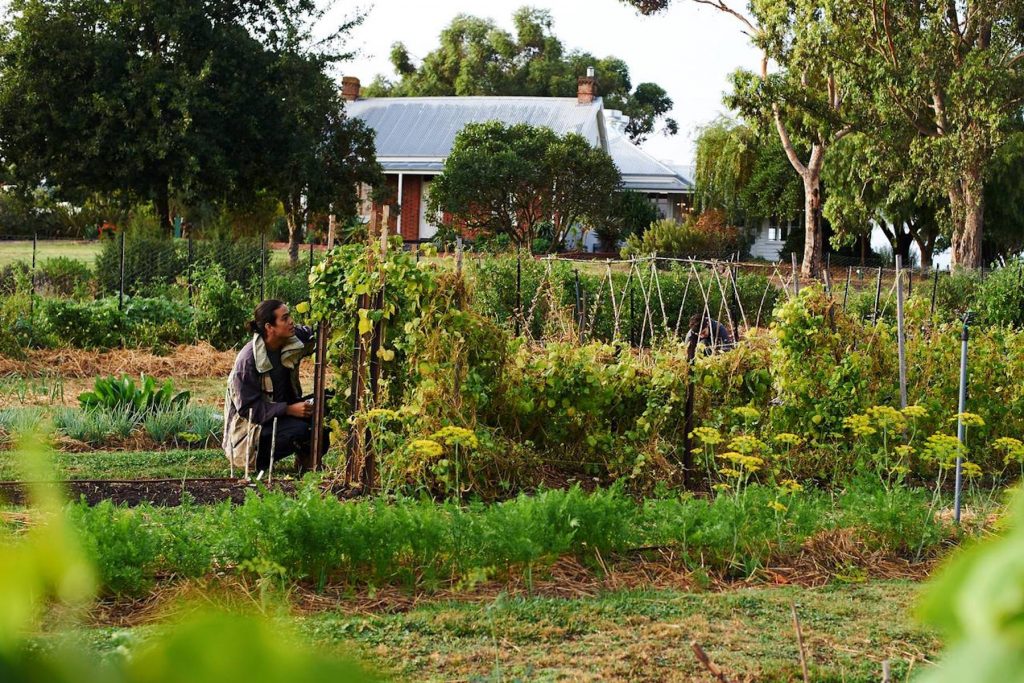
Reground is a social enterprise located in Melbourne that builds a link between cafes and local community to create a circular economy based around waste minimisation. They originally started with a small team of 2 founders - Ninna Larsen ad Kaitlin Reid - collecting coffee grounds from cafes and distributing to community gardens and local gardeners for use as compost. Café owners save money on waste disposal, gardeners get a free resource to improve soil fertility and greenhouse gases are kept out of landfill. A simple concept that benefits everyone involved. In the years since the team has grown and they've expanded into chaff collection from roasteries and soft plastic recycling. They also help design and implement waste reduction strategies for apartment buildings and local councils, improving Melbourne's urban environment for years to come. Dozens of venues throughout the city have signed on to Reground's program, proudly displaying the logo in café windows.
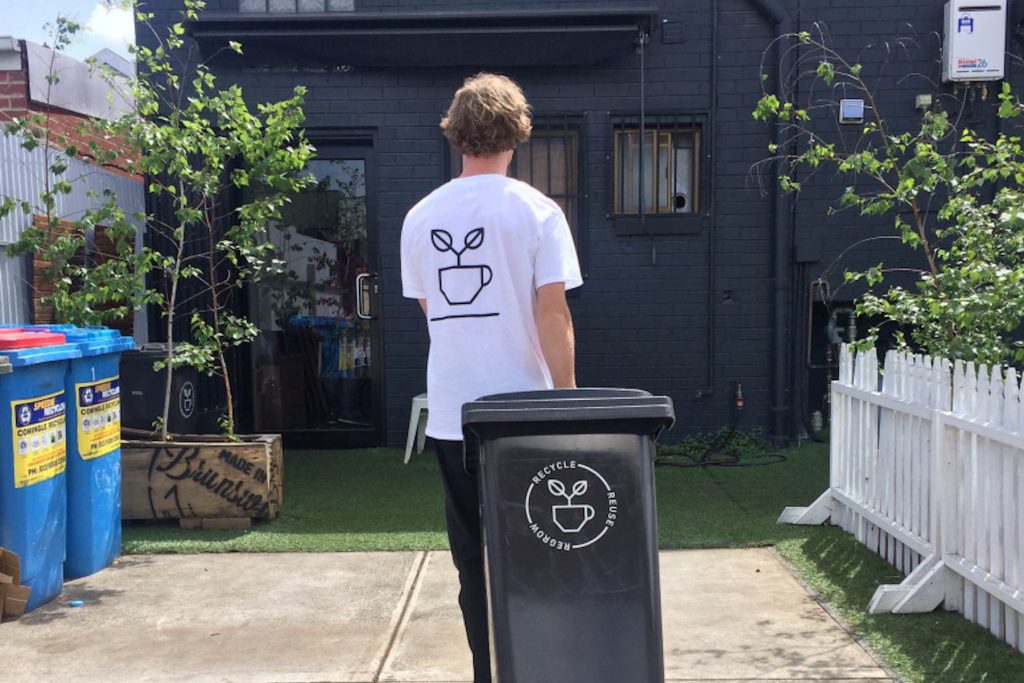
A few years back Two Before Ten made the move to switch over all packaging to compostable materials. Every bag of coffee beans, every takeaway cup and every container is either reusable or compostable. But with the lack of commercial composters available to the public, this wasn't enough. In 2022 the Aranda Urban Farm added an industrial composter to the onsite facilities. Now, these packaging materials are composted together with food scraps from the kitchen, coffee grounds from the cafe and garden waste from the farm to create a closed loop system and greatly reduced waste footprint. The cafes each have colour coded bins to separate compostable items from recyclables and make sure everything is given the opportunity to fulfil a second life.
